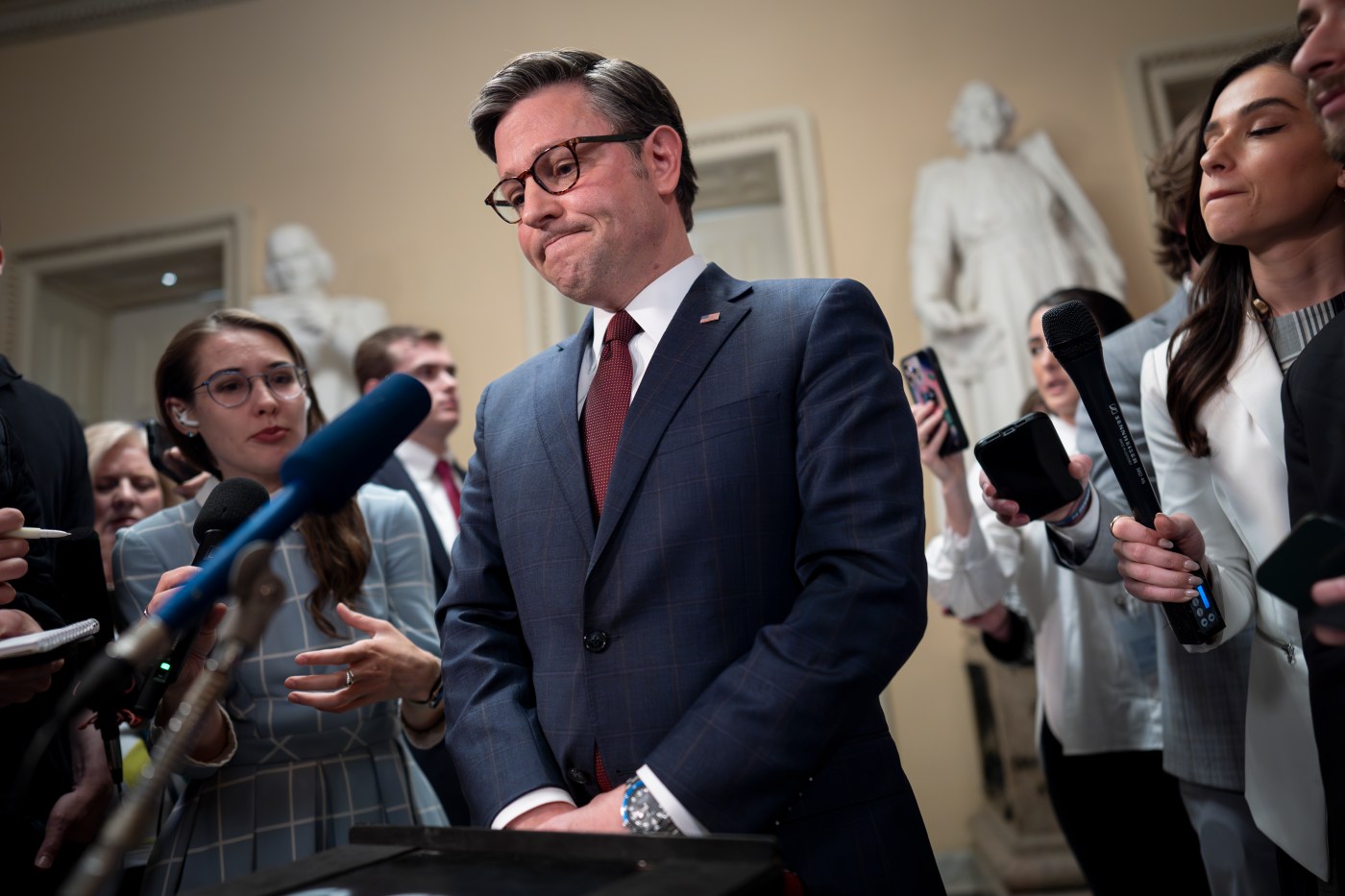
[Baltimore Sun] America is not becoming isolationist | GUEST COMMENTARY
A specter is haunting the world — the specter of American isolation.
Signs of a retrenchment start with Congress’ reluctance to authorize additional military assistance for Ukraine to defend it from a revanchist Russia. An aid bill finally made it to Biden’s desk for a signature this week, but it took the GOP-led House months to pass their version of the legislation, with many Republican leaders claiming the U.S. should focus instead on problems closer to home — a sentiment widely shared on the right. According to a 2023 poll conducted by the Chicago Council on Foreign Affairs, for the first time in a half-century, most Republicans believe the U.S. should stay out of world affairs, not take an active part in them.
Democrats also seem to have embraced their inner isolationist. The Biden administration kept in place stiff tariffs on Chinese goods instituted by its predecessor and doubled down by enacting a formidable array of subsidies and incentives of its own. The latter was purportedly to address the twin threats of Beijing’s growing industrial might and climate change, but critics claim it is merely prettied-up protectionism.
An era characterized by bridge-building to create a prosperous future appears to have been replaced by one of barrier-erecting to restore an imagined past.
Like a petulant teenager, the U.S. periodically goes through stages of fretful self-absorption. Drawing inspiration from the country’s founders and earliest leaders like John Quincy Adams — who famously said “America goes not abroad in search of monsters to destroy” — the U.S. occasionally takes down its shingle in frustration with a fallen world. In the 20th century, such insularity gripped the country before each of the two world wars, when Americans were loath to get involved in what many saw as the Old World’s interminable conflicts. The time had come to put “America First.”
Yet those inward-looking periods, however notable, run counter to the national character defined by what might be described euphemistically as robust engagement with the outside world or, as critics would say, meddling in other countries’ affairs. It’s always been so. Look no further than the territorial ambitions of the earliest European settlers to this country’s shores. Such was their insatiable lust for land that, in the early 17th century, a frontier revolt ensued when Virginia’s governor refused to authorize a raid to seize territory from the native inhabitants. In a fit of angry retribution, Bacon’s Rebellion culminated with the sacking of the state capital in Jamestown.
Later, the British Crown’s prohibition against additional Anglo-American settlement of land occupied by indigenous tribes allied with it during the French and Indian War infuriated the colonists, contributing to their subsequently declaring independence. What could pass for the brazen upstart’s foreign policy was anything but restrained and definitively not isolationist. Quite the opposite — as the world would soon learn.
And so it went as America became America and eventually expanded until the young country’s borders stretched from sea to sea and encompassed a large chunk of what once was Mexico. After that conquest, the country consolidated its hegemony over the Western Hemisphere and beyond. Such sweeping ambition is intrinsic, an expression of America’s inborn missionary zeal. In “The End of the Myth,” historian Greg Grandin drives this point home by recalling a speech by Edward Everett, the influential editor of the North American Review. In 1829, Everett told an audience in Ohio, “It is civilization personified and embodied, going forth to take possession of the land … like the grand operations of Sovereign Providence.” Expansion was, in other words, America’s Manifest Destiny.
Of course, some might take issue with a portrait of the country as obsessively self-aggrandizing, often to the detriment of others. They might, for example, point to America’s leading role in creating and maintaining critical post-war institutions that ensure global order, like the United Nations and NATO, as well as its provision of what are called global public goods necessary for peace and prosperity, such as ensuring the arteries of international trade are kept flowing. The country’s more than infrequent blunders notwithstanding, as this argument goes, the U.S. is and always has been a force for good.
Much ink has been spilled about the nature of America’s role in the world. Suffice it to say the role the country plays is as complex and varied as its people. “America is not a country, it is a world,” Oscar Wilde observed following a year-long tour of North America in 1882.
The playwright and poet was right. America is a world unto itself, and its place in the broader one — for good or for ill — will remain contested among the country’s inhabitants. As a result, some gyrating between dispositions is inevitable, yielding moments when the U.S. may turn inward. But it’s a sure bet they won’t last. They never do. America’s not going anywhere.
The U.S. and the rest of the world are locked in a marriage. The union has its rough patches, and the couple may hate each other at times, but divorce — what would that even look like? — is simply not an option. It never was.
Jon Sebastian Shifrin ([email protected]) is a foreign affairs officer at the U.S. State Department. The views expressed in this essay are his own and do not necessarily reflect those of his employer or the U.S. government.
